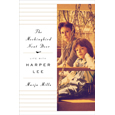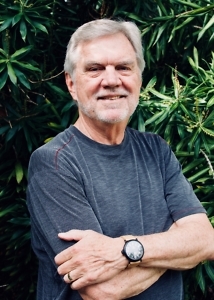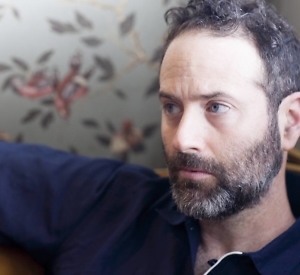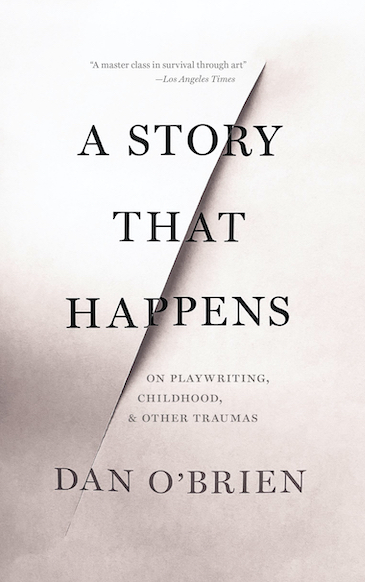The Death Detective
Patricia Cornwell talks with Chapter 16 about The Bone Bed, her twentieth thriller featuring forensic pathologist Kay Scarpetta
Creator of one of the world’s most popular crime solvers, Patricia Cornwell pioneered the genre of forensic thrillers, opening the door for countless similar books and television shows. Since 1990, her chronicles of Dr. Kay Scarpetta, a medical examiner, have been published in more than 120 countries and have sold more than 100 million copies. Cornwell’s latest, The Bone Bed, is the twentieth book featuring Scarpetta, and this one centers on a high-stakes investigation surrounding a paleontologist who’s gone missing while on a dinosaur dig in Canada. Scarpetta connects the woman’s disappearance to recent crimes, including a murder closer to home, in Massachusetts, where she’s called to separate a dead body from an endangered leatherback turtle, among other feats. The story is nail-bitingly violent and suspenseful, and it highlights Scarpetta’s signature survival instinct, brilliant logic, and attention to personal relationships. In advance of a Nashville appearance on October 20, Cornwell recently spoke by phone with Chapter 16.
Chapter 16: In a quest for veracity, you’ve done everything from witnessing a prisoner’s execution to biting into raw chicken to study bite marks. What kind of research did you do for The Bone Bed?
Patricia Cornwell: I do a lot of research on all my books, and at this stage, the research becomes cumulative; it’s like layers of civilization. For example, when I’m having Scarpetta work the dead body that she gets out of the harbor in Boston—a tricky case; this woman’s going to start decomposing really, really rapidly because of the condition she’s in. All the things Scarpetta would do in a situation like that are built on twenty-five years of my hanging out with forensic pathologists and going to morgues and just constantly immersing myself in that type of research. I couldn’t have written any of these books if I hadn’t written all of them.
 Even so, you have to do fresh research for each one. I just arrived in Baltimore, where I’m going to be doing filming at the Maryland medical examiner’s office, which is this amazing, space-age facility. To me, Baltimore has the most incredible civilian medical examiner’s office in the country. This is a place that I come to do research. I watch the CT scans, the autopsies. I go early in the morning when they’re doing their review of the cases, they make their rounds, and all the bodies are out on tables in the various autopsy suites. This is part of my indoctrination for every book, to be reminded of what’s real. The bodies in my books, I want to treat them like they’re dead people, with the same respect and the same degree of emotional investment that Scarpetta would feel. It’s very easy in crime fiction for the dead bodies to simply become props, and I don’t ever want to treat people like props. I want them all to be very real and I want my readers to feel what I feel when I see the real thing. So I have to make the rounds every year.
Even so, you have to do fresh research for each one. I just arrived in Baltimore, where I’m going to be doing filming at the Maryland medical examiner’s office, which is this amazing, space-age facility. To me, Baltimore has the most incredible civilian medical examiner’s office in the country. This is a place that I come to do research. I watch the CT scans, the autopsies. I go early in the morning when they’re doing their review of the cases, they make their rounds, and all the bodies are out on tables in the various autopsy suites. This is part of my indoctrination for every book, to be reminded of what’s real. The bodies in my books, I want to treat them like they’re dead people, with the same respect and the same degree of emotional investment that Scarpetta would feel. It’s very easy in crime fiction for the dead bodies to simply become props, and I don’t ever want to treat people like props. I want them all to be very real and I want my readers to feel what I feel when I see the real thing. So I have to make the rounds every year.
For The Bone Bed, I needed to familiarize myself with turtles, particularly the leatherback turtle. I spent time with New England marine-animal rescuers and touched these turtles and had to put on a dry suit and get into a water tank with some of them. When I described Scarpetta retrieving that body of the harbor in the dry suit, I needed to know what it felt like for her to do that, putting it on, getting in the water. I want my readers to feel the same things that I feel. I want to give them that experience. So I did a lot of that type of research. I went on a dinosaur dig in Grande Prairie, exactly where I describe in the book, stayed in a trailer, went out in the woods with no electricity, pouring rain, mucky mud. I found some dinosaur bones and a tooth in the very place where I had the paleontologist last visit before she disappears. That’s a bone bed that I actually worked on. I had to climb up the side of a mountain to get to it, with bungee cords. So sometimes I pick something to do because I want to write about it, and sometimes it picks me.
I ended up on a dinosaur dig [because of] my very good friends Dan and Donna Aykroyd. They’re very involved in the fundraising they’re doing for the dinosaur museum they’re building there, and Donna called one night and said, “Do you want to go on a dinosaur dig?” I thought, “Wow, that’s a crazy invitation and I probably don’t have time, but I can’t say no to something like that.” That’s where I got the idea for the missing paleontologist. That became the genesis of the story.
Chapter 16: Early on in this book, Scarpetta thinks, “There really isn’t anything gory or gruesome I’ve not seen or can’t somehow handle.” Do you feel that way? Where do you draw the line about what details to include when it comes to corpses?
Cornwell: I do have my barriers. There are things that are, quite honestly, so disturbing or so disgusting that it’s upsetting, and there’s no reason to expose my readers to that. I see and experience many things that I would not share because I think they’re damaging and gratuitous. These boundaries are something you have to learn over time. You test them. I’ve tested them as a writer constantly over these past twenty-two years, and sometimes I get too close to one, and then I back off. For example, for some years when I was writing in the third-person point of view, and that entailed my having to go into the mind of a killer, like in Trace, Blow Fly, Predator, and Book of the Dead. After Book of the Dead, which came out in 2007, I said, “I can’t do this anymore; it’s too upsetting to me. I don’t like spending time with these evil people, and it’s too graphic to show the violence of what they do.” It’s much safer when we’re inside Scarpetta’s mind or at least very close by with her. So I backed away from all that, and now we’re back to her first-person point of view; we’re inside her mind. That doesn’t mean necessarily that it’s a safe world she’s in, but somehow it feels safer when she’s there. In The Bone Bed, it’s very harrowing, what happens at the end, and we should be quite frightened for her, but I think there’s an in-built trust that I’m not going to let anything happen to this character.
Chapter 16: You’ve pioneered this genre of forensic thrillers and, by extension, innumerable television shows like CSI. Why do you think people respond so ardently, even obsessively, to these character-driven stories about murder and the study of evidence?
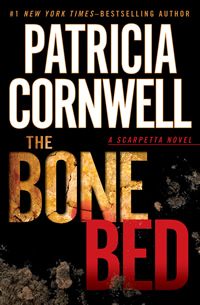 Cornwell: Because people are all basically puzzle-solvers, and we all examine our own existence and what could threaten it. I think it’s just human nature, like when you’re driving past a car wreck and everybody turns around and looks. We’re thinking of ourselves. What did that person do to cause their car to be all wrapped around a guardrail? Or what happened to this woman that went out in her back yard to let her dog out and was never seen again? We want to know these things because we have a rationalization that if we understand random violence—or even premeditated violence or acts of God—then maybe we can prevent them from happening to us. It’s a survival instinct, oddly. Scarpetta made forensic science and medicine accessible to the average person and to the entertainment industry.
Cornwell: Because people are all basically puzzle-solvers, and we all examine our own existence and what could threaten it. I think it’s just human nature, like when you’re driving past a car wreck and everybody turns around and looks. We’re thinking of ourselves. What did that person do to cause their car to be all wrapped around a guardrail? Or what happened to this woman that went out in her back yard to let her dog out and was never seen again? We want to know these things because we have a rationalization that if we understand random violence—or even premeditated violence or acts of God—then maybe we can prevent them from happening to us. It’s a survival instinct, oddly. Scarpetta made forensic science and medicine accessible to the average person and to the entertainment industry.
What has proliferated because of that—well, it’s just astonishing. There’s almost no channel you can turn to on TV that doesn’t have some aspect of this in the show. It’s not that I invented it; it’s just that Scarpetta made it accessible because I did the sort of research I needed to do in order to describe these things to people in a way that’s understandable.
Chapter 16: In previous interviews, you’ve spoken openly about deeply personal aspects of your life, from your father’s abandonment when you were five to your mental health. Scarpetta, as her readers know, has gone though a lot of trauma, too, including her husband’s death and being stalked repeatedly by serial killers. You’re both extremely well regarded within your respective fields. How does work offer redemption? Is that a part of it?
Cornwell: Work absolutely offers redemption. When speaking of the mental health, let me add something because there’s something that continues to get recycled that actually isn’t true. Don’t say that I’m bipolar because I’m really not diagnosed as that. What I’ve dealt with are a lot of emotional difficulties that are more due to having a narcissistic temperament, which makes me very, very sensitive, but also the traumas from my childhood. These things don’t go away. When you go through significant traumas when you’re growing up, while you may develop great coping skills, there’s hollow spaces and those wounds are always there; you just figure out ways to deal with them.
When I was a little kid one of the ways I dealt with my losses and my fears and my loneliness was being creative. If I couldn’t tolerate the world I was living in, I’d make up one of my own: writing stories or poetry, or drawing pictures, or whatever my make-believe was. I learned at a very early age to transport myself onto the other side of the looking glass. That’s what I do when I write Scarpetta. I walk into her world and I think one of the reasons it feels so graphic and immediate to my readers is I have a somewhat unusual ability to actually go into that place and to report on it as if I’m there, to make it very tactile and graphic, and I think the power of that was earned very early on by practicing it over and over again at times in my life when I needed to do that to survive.
Chapter 16: What is it in particular about Kay Scarpetta that’s had a hold on you and millions of readers over the last twenty-two years?
Cornwell: Somehow you know when she walks into the room that no matter what happens she’s going to make it OK. You’re going to be all right. She can take the worst horrors of any horrors, and she’ll sort them out and she won’t quit until she solves the problem. She’s an extremely brave and feisty woman. She’s absolutely relentless. She’s incredibly smart. Her deductive skills are amazing, and her technical skills are amazing, but best of all she’s a decent human being. She’s not arrogant. She never abuses power. She doesn’t try to trick people or get revenge. She’s really what I would call an enlightened human being, and it’s what we all, I would hope, would aspire to be like: someone of courage and moral fiber; she has integrity but she’s not going to take any crap off of somebody either, cause she’s brave. In The Bone Bed, when she’s confronted with obstacles, whether it’s an animal rescuer who doesn’t want her touching the turtle or somebody who wants to murder her, she’s going to figure out a way to get the job done, and she’s going to work around the obstructions, no matter how awful they are. I think it gives people hope.
Chapter 16: At times I’ve lost patience with Lucy, to the point where it’s been almost painful to read. How do you feel about Lucy?
Cornwell: Lucy’s a really interesting character. Lucy is meant in many ways to be a foil for Scarpetta, and she’s a metaphor for something different. This is a remarkable person, but Lucy’s not entirely good, and Scarpetta has to and does love her anyway. Scarpetta, in the last couple of books, has basically alluded to the fact that she knows that Lucy has a sociopathic streak in her, which is not a great quality but it’s also not atypical of people like spies, or who work in special ops, the kind of people who don’t really understand fear. That is Lucy. She almost doesn’t have a fear button. She’s not afraid of anything. She’s extraordinarily aggressive. She’s still a humanitarian, but she does things that you and I wouldn’t do. Scarpetta doesn’t even always want to know what Lucy has done.
Chapter 16: Lucy is the only character who has literally grown up throughout the series. On that note, I wonder what’s been different for you about the experience of writing the first Scarpetta book that was published in 1990 and this, the twentieth?
Cornwell: These characters grow up with me, and I grow up with them; I create them and they create me. I learned to fly helicopters because I decided Lucy should do it; I made her a pilot, and in turn she made me one. I became a scuba diver because of Scarpetta. The world we live in today isn’t even remotely similar to the world of the late 1980s, when I started all of this. And the genre changes. As I invented a genre, the forensic thriller, in turn I have to reinvent it because everyone else is doing something similar. It’s extremely organic. As I get older, I think differently, and I notice different things, and I have different reflections on life and death and answers to questions like, Why do people do what they do? I don’t believe it’s possible that the series could have sustained the momentum that it still has if it were not constantly in flux and very much alive and vital and changing.
Chapter 16: In 2009, Fox bought the rights to make a Scarpetta film, with Angelina Jolie attached. What’s the latest news on that?
Cornwell: We’re very much in the development process of this film. The whole challenge is to get a really great screenplay, and I’ve been helping with that. The next step is to find a great filmmaker. After that, you decide on casting. Angelina Jolie has been attached to this since about three years ago, but that doesn’t really matter because at the end of the day we don’t know who any of these people are going to be. Nobody’s been cast. To be honest, who plays these characters is a lot less important than having a powerful script and a great director. So that’s where we are right now, and we’re certainly much closer to that than we’ve ever been before. I’m working with a great team of people, and I’m confident we’re going to end up with something pretty cool.
Chapter 16: I know you lived in Tennessee long ago, when you attended King College in Bristol for a year. Do you have any vivid memories from that period?
Cornwell: My vivid memories of Tennessee that are more relevant are all the times I’ve been to Knoxville because of the National Forensic Academy and the Body Farm [at the University of Tennessee]. That’s almost a second home to me. I’m extremely comfortable in that area. I think of Nashville and Knoxville as Tennessee more than I think of Bristol, which is so close to the Virginia line, and it’s just over the hills from North Carolina. I remember going off to college for the first time, and my most vivid memory of going off to King College is just leaving home. I would take the bus from Asheville through the mountains to get to Bristol. That’s a big deal when you finally leave home.
Chapter 16: Speaking of the Body Farm, what drew you there initially?
Cornwell: That place was developed over thirty years ago by anthropologists, and the point was to study the decomposition of human remains so we could learn more about time of death and all sorts of other artifacts that are very important in interpreting a crime scene. Getting the body to talk to us: Where were you? What happened to you? Why are you dressed like this? What is this strange pattern injury on your back? Is it from lying on a rock, or did somebody do something to you? How long has the person been dead is always the key question. It really is a remarkable research facility, but it’s not a happy place to go. It’s a very unpleasant place to go.
Death, particularly decomposing death, is a terrible assault to our senses. We’re not supposed to like it. Our biology yells, “Run!” because I’m sure, back in primitive times, if you smelled the stench of death when you were walking through a forest, you didn’t know if that meant a slaughter had just happened and the enemy might still be nearby, or if these people died of a disease that could be contagious. We were meant to be offended by things that might signal danger. Again, death is of interest to us if we want to survive.
Chapter 16: It seems as if you’re always working, or doing interviews. How do you protect your personal life and space?
Cornwell: You find ways to protect your personal life and your privacy, things that really must be protected, but I’m basically a really open person. It’s my nature. I have a very strong set of values. I believe it is imperative that one is truthful, so you don’t pretend to be something you’re not; you don’t lie about who you are. You don’t cause people to have a higher opinion of you than you deserve because when you do that it’s really a sin against humanity. We’re basically all human beings who have the same wishes and hopes and fears and desires, and I try to stay part of the population that I started out in. I think that by telling the truth, whether it’s about my childhood or emotional difficulties or high spots, low spots, whatever it is, I’m also saying to other people, “This is not just for me; you can have a good life, too.” I didn’t start out with a magic wand in my hand. I wasn’t born in a royal family. I know I have some talent, and I know I work very hard, and I’ve also been very fortunate, but I have a special distaste for celebrities who act as if they’re in a class all their own and therefore untouchable by everybody else. I think that’s a heartless thing to do. I would hope that my contact or influence on other people is to inspire them and say, “You can make a difference.” If you’ve changed even one life, you’ve changed the world.
Chapter 16: I was fascinated by your nonfiction book about Jack the Ripper, and I’ve heard you’re still investigating that case.
Cornwell: You’ll get another dose of it next year because I’m just finishing up the revision of it. Next year is the 125th anniversary of when the crimes began, as far as we know. Over the last ten years, I realized, I have a lot of information that’s been gathered over time, so I’m just going to update it. I’m also going to make a lot of the information—such as the scientific reports, photographs, a lot of things—available not only in the ebook but also on my web site, so that people can actually go and do the research themselves. Let them work the case!
Patricia Cornwell will discuss The Bone Bed on October 20 at 1 p.m. at University School of Nashville as part of the Salon@615 series. Tickets are free, with half the seats available for pre-registration online and the rest handed out at the door. To reserve tickets online, click here.

